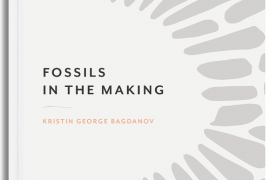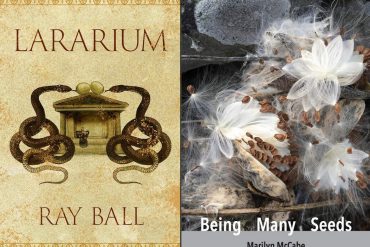Writing about oneself can prove to be more difficult than expected, especially when it extends into intimate details of one’s family and their history. Couple this difficulty with the potential scrutiny of others, and putting pen to paper can seem an almost impossible task. Reading Dayna Patterson’s If Mother Braids a Waterfall, however, one realizes that the best approach to anything is honesty, and that no matter how challenging it might be to put one’s life in the spotlight (regardless of genre), doing so can help one not only better understand the past, but gain the confidence to forge a new future. If Mother Braids a Waterfall is a debut poetry collection that explores faith, family, the complexity of one’s ancestry, the newfound knowledge of a mother’s bisexuality, and the patriarchal constraints that govern the perception of women in the Mormon community and in society at large. This is a book that illuminates the growth and change of a mother, daughter, and wife, and that recognizes that no matter what triumphs and tragedies one might experience, it is never too late to live a more fulfilling life.
-Esteban Rodriguez, Interviews Editor
If Mother Braids a Waterfall wasn’t supposed to be my first book. In 2017, I graduated with my MFA in poetry and creative nonfiction with a polished book manuscript in hand. My peers, mentors, and thesis committee had workshopped and questioned and lovingly scrutinized every piece and every decision I’d made in the collection. Lots of tears and sweat and elbow grease went into that manuscript, and my thesis chair, Bruce Beasley, recommended that I put aside a good sum of money for contest submission fees. I followed his advice and submitted to every first book contest I could find.
While that manuscript was circulating, I began thinking about some of the other pieces I’d written during and before my MFA that didn’t fit neatly into my thesis. In Brenda Miller’s creative nonfiction class, I wrote two essays called “The Mormons Are Coming” and “Post-Mormons Are Leaving” after studying Carole Maso’s “The Intercession of the Saints.” As I was reading her piece, I was struck by how vivid the objects are, the resonant thingness of the work. Rather than verbs doing the heavy lifting, the associated symbols of each saint seared into my mind like sun prints. Maso leans on her nouns and they positively vibrate. Of course, as I read her piece, I also thought of Latter-Day Saints, the official name of the Mormons, and I decided to try to write a lyric essay about my movement away from orthodoxy while centering on the materials and items I associate with Mormondom. Towards the end of the term, Brenda recommended I write a third piece to complement the two essays I’d written. Those three lyric essays became the skeletal structure of If Mother Braids a Waterfall.
I decided not to go the contest route with this book because I knew it was a perfect fit for Signature Books. They have an excellent reputation of publishing liberal Mormon feminist poetry, and I had read and reviewed several of these collections. I talked to some of their authors about their experience, then submitted. Initially, they asked me to revise a few things and resubmit. They wanted to change the title (it used to be Letters to My Polygamist Ancestors) and they requested that I condense and spread out some of the epistolary poems in the first section. I agonized over a new title, polling friends, writers, and online literary communities for ideas. I ended up choosing the title of an existing poem, but since it became the title poem I moved it to a more prominent position in the collection (second to last) and even reworked some of the lines so that, hopefully, it could bear the weight of being the title poem. I resubmitted and a few months later, Signature sent me a book contract. I was grateful and astonished and cried on the bus all the way to work.
My other manuscript received one semifinalist nibble in over 50 contest submissions. I’m not complaining, or giving up, but I am taking a break to revise and reconsider. In many ways, I hoped my MFA thesis would be published first because, while it deals with similar subject matter–my movement away from orthodoxy after my mother’s coming out–the speaker hides behind the comfortable costumery of persona. In If Mother Braids a Waterfall, the “I” steps out into the unprotected air. It feels like a much more vulnerable collection, and about a month before it went to press, I had to stave off a wave of panic. Panic that some of my Mormon family and friends would read it and feel hurt or disappointed. Panic that it could get me excommunicated from the LDS Church. Panic that it was too revealing, too honest. Now that the book is out, I’m happy to report that so far I’ve only received positive feedback and words of encouragement. And as I write this, I’m wondering if If Mother Braids a Waterfall will actually help ground readers when my next book, with its array of personas, comes into the world.





